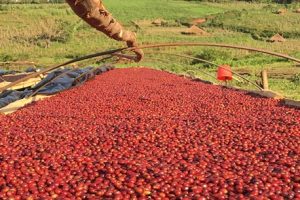
Needless to say, the outbreak of COVID -19 pandemic all over the world has disturbed the political, social, economic, religious and financial structures of the whole world. Most of the nations are going through recession and the collapse of their economic structure. With the staggering conditions in this regard; almost 80 countries have already requested International Monetary Fund (IMF) for financial help.
Our economy, which was said to have grown in double-digit consecutively for a decade; yet paradoxically relying much on foreign aid and accruing grants from fellow nations, not to mention the immense international loans, holds just a dwindled market share in the global economy.
At the dawn of the political change that occurred a couple of years before, it was expected to undergo a grave economic downturn for the years ahead; even before the outbreak of the pandemic. With the outbreak of the pandemic, fuel was added to the fire. As a result, the government is now totally absorbed in combating the pandemic and curb its wide range of adverse consequences. Praiseworthy its decision is, as nothing is more important than protecting the welfare of citizens.
With many businesses now on the vergeof shutting down, production dwindling in manufacturing industries, banks in fear of liquidity the problem, the service sector almost being in the brink of total closure, agricultural productivity expected to shrink due to crop failure with ample size of the farm being infested by locust, it is high time for the government to take time, contemplate and revitalize some of the local and international economic decisions already undertaken. No opportune moment may come better than today with COVID-19 shattering everything and lessening movements. The best gift of COVID-19 is, perhaps, a moment in time to do nothing but contemplate, one may not have in a lifetime in this hectic world. The focus of this article pinpoints only on the international economic accords made by the country, especially in the region.
Bidding to swim in the global economic circle generally and with the vision of economic integration of African countries, in particular, Ethiopia has been one of the signatory countries for founding the Common Market for Eastern and Southern Africa (COMESA) in 1994.
Established with a vision to be a fully integrated economic community that is prosperous, internationally competitive, and ready to merge into the African Economic Community, COMESA that comprises 21 African nations, aims at promoting regional integration through trade and the development of natural and human resources for the mutual benefit of all people in the region. Among the five main objectives of the COMESA, which are not, of course, limited to just five, one of it underscores the need to create and maintain full free trade area guaranteeing the free movement of goods and services produced within COMESA and the removal of all tariffs and non-tariff barriers. This is the focus of attention in this short compilation.
Ethiopia, being one of the founders of the Organization of African Union, now the AU, does support every single socio-economic and political measures are undertaken by the union; as long as it benefits the continent. Besides, the country clearly understands and believes in the motives behind establishing the COMESA; as well as the noble ideas underlying the economic integration concepts like harmony, peace and integrated growth through mutual interest.
It was with this conviction, the country’s move towards economic integration gained momentum when the Council of Minister of Ethiopia last year approved the African Continental Free Trade Agreement (AfCFTA), which envisages creating the largest common market in the world. Earlier in 2018 March, it is recalled that Ethiopia had signed AFCTFA in Kigali, to become the 44th nation in the menu.
However, despite the fact that Ethiopia is a member of the COMESA, the country is not so far a member of the Free Trade Area (FTA) that was launched in 2000. Should the country step up to join the free trade area or refrain from the move due to various factors has been a bone of contention for many years in the past.
Some Scholars, which is also the best conviction of this writer, say Ethiopia is increasingly collaborating with its neighbours – notably Kenya, Sudan, Djibouti and South Sudan – in the areas of energy and transport, among others, and the Ethiopian private sector is increasingly investing in those countries. All these countries are thus enhancing their economic co-operation despite the tense and complex security situation in the region, and Ethiopia’s still being outside the formal FTA.
The benefits for Ethiopia in joining the FTA are therefore unclear, and it may well gain more from continuing to develop its economic relations with its neighbours beyond the formal trade liberalisation within the ambit of the FTA.
see Dilemmas in the move page…7
The Ethiopian Herald May 21/2020
BY ENEDALE ASSEFA





